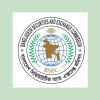Why ESG standards matter now more than ever for Bangladesh

The global investment landscape is no longer what it used to be. Today, investors are looking beyond profits; they want to know where their money is going and what kind of impact it is having. Is it helping clean the air, making workplaces safer, and encouraging fair treatment and sound governance? Such questions are being raised. This is where Environmental, Social, and Governance (ESG) standards come in.
For Bangladesh, ESG standards matter now more than ever. We will officially graduate from the Least Developed Countries (LDCs) status of the United Nations on November 24, 2026. It is a significant step forward, but it also means losing trade preferences and access to concessional development finance that were arranged under the LDC status. As we enter a more competitive global market, the quality of our growth and how we earn investor confidence will be crucial.
Globally, ESG performance is becoming a key indicator for investment decisions. Countries that score well on ESG are seen as safer bets, more stable and future-proof. ESG is not just about image; it is about demonstrating a genuine commitment to sustainability, equity, and transparency.
Let us pause for a moment and break down the ESG concept. This is not some development buzzword. "E" stands for environment, covering issues such as climate resilience, clean energy, and pollution control. "S" refers to social factors, including working conditions, community impact, and gender inclusion. "G" is governance, such as how rules are made, whether they are being enforced, and how institutions hold up under pressure.
Investors now treat ESG as a core part of assessing long-term risk. This means ESG is no longer a "nice to have"—it is a key factor in economic decision-making.
Bangladesh has taken some steps in the right direction. The Bangladesh Securities and Exchange Commission (BSEC) has made ESG reporting in annual reports mandatory for listed companies, in line with the Sustainability Reporting Guidelines (SRG). The Bangladesh Bank has issued guidelines on sustainability and climate-related financial disclosures for all banks and financial institutions operating in the country. Moreover, several NGOs are voluntarily reporting on ESG performance. However, real ESG integration remains limited. Most businesses are still at an early stage, if they are engaging at all.
Awareness of ESG remains limited, particularly among small and medium enterprises. Even among larger firms, ESG reporting often reads more like a marketing effort than a reflection of measurable progress. There is no unified national roadmap, which has led to fragmentation.
Social and governance challenges remain serious. Issues such as child labour, workplace safety, and uneven enforcement of labour laws continue to attract negative attention. When these are combined with slow judicial processes and inconsistent regulation, it becomes clear why many investors remain hesitant.
Another major hurdle is the lack of mandatory ESG disclosures. Most firms can simply choose not to report anything. Banks and financial institutions also do not consistently assess ESG risks. This allows weak practices to go unchecked. Agencies such as the BSEC, Bangladesh Bank, and various ministries are each working on parts of the ESG agenda, but rarely in coordination. Our financial sector also needs modernisation. Instruments such as green bonds and ESG-linked loans are still rare. Without them, companies have limited options for funding sustainable growth.
ESG is not just relevant for foreign investors; local companies also stand to benefit. Strong ESG performance can reduce operational risks, cut costs, and build better relationships with workers and consumers. With more Bangladeshi firms entering global supply chains, particularly in garments, pharmaceuticals, and leather, complying with international ESG standards is no longer optional.
What needs to happen? First, ESG reporting should be mandatory not only for listed companies but also for large private firms. Reporting must follow clear, internationally recognised standards such as the Global Reporting Initiative (GRI) or the Sustainability Accounting Standards Board (SASB). When companies report in a comparable way, it builds trust and enables proper evaluation. This kind of transparency will foster real investor confidence.
Second, the Bangladesh Bank could do much more to encourage long-term thinking within financial institutions. If banks offer more ESG-linked loans or promote green bonds, businesses will have a stronger incentive to prioritise sustainability.
Third, small and medium-sized businesses need targeted support, including plain-language guides, workshops, and hands-on assistance, to help them begin the ESG transition.
Fourth, a national ESG task force, comprising representatives from business, government, and civil society, could help coordinate efforts and bring coherence to currently fragmented initiatives.
Finally, ESG must be integrated into national planning. It cannot be an afterthought; it needs to be embedded into our climate goals, industrial policies, and our very definition of progress.
Bangladesh is entering a new era. The choices we make now will determine how the world views us in the years ahead. ESG offers a way to rethink how we measure success. It brings people, the environment, and governance into the conversation—elements we too often treat as secondary but which, in truth, hold everything together. When these elements are ignored, progress tends to unravel. But when they form the foundation, we can build something more stable, more inclusive, and more humane.
ESG will not solve everything, but it gives us a framework to do better, if we choose to take it seriously. The path is there. It is up to us to walk it.
Zubayer Hossen is programme director at South Asian Network on Economic Modeling (SANEM). He can be reached at [email protected].
Views expressed in this article are the author's own.
Follow The Daily Star Opinion on Facebook for the latest opinions, commentaries and analyses by experts and professionals. To contribute your article or letter to The Daily Star Opinion, see our guidelines for submission.

 For all latest news, follow The Daily Star's Google News channel.
For all latest news, follow The Daily Star's Google News channel. 









Comments